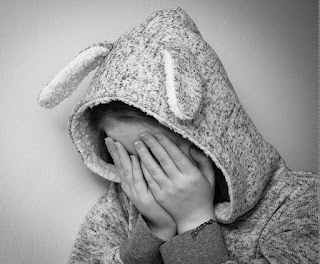Wednesday, 20 November 2019
Autism. "Social Hangover". Why the bit after an enjoyable time is difficult to cope with.
"I don't understand it. We had a fantastic time, at the social events. Then, afterwards, meltdown. Or they just wouldn't talk to me at all. How ungrateful is that?"
A common response from some of those around autistic people. Sometimes it spreads to other thoughts. "Perhaps it's actually bad for them to see those people. Perhaps they need isolating further? They're often upset afterwards. Is that person a danger to them?"
A lot of potential damage can be done by misunderstanding 'social hangovers' and autistic people. Being clear that if someone is a potential actual danger, of course it's right to investigate that.
Let's see if I can explain more about 'social hangovers' and autistic people.
Firstly, many autistic people actually love being with non-autistic people for a while. But it's hard. For us, and for them. There's a lot of 'interpreting' going on, between the two neurotypes. Autistic and non-autistic people speak a different set of social languages and signals. So both can end up very tired. (Real research behind that - truly we speak different social languages)
Secondly, a lot of socialising is done in a space with a lot of noise, smells, chaos. See https://vimeo.com/52193530 for details. Turn the sound right up. Two minutes you'll never regret seeing, if you want to understand autistic sensory differences. Sometimes patterned or grill-effect walls and fences can cause 'sensory static' for autistic people that becomes more and more difficult to process.
Autistic brains can handle about an hour and half of that chaos, if we really put effort into it. Some, far less. Some can do more. When we reach 'stop' it's really hard to work out what's happening, for some of us. We know we feel overwhelmed - but this is fun. We want to be with the person. So we don't notice the 'stop' signals our bodies are giving us.
Then, back we go into a building where they may be more sensory hell. Perhaps noises, echoes, smells, flickering lighting...and we've no brain room left to process any of it. Not even to explain it properly. Another set of people try to interact, and whoosh - meltdown. A brain event. Not in our control. Or, possibly into shutdown. An inability to move, speak. (Those may be more common, by the way - and are often mistaken as defiance or rudeness). Mine are shutdowns. Not spectacular to look at. Hugely horrible to experience. Like being totally paralysed.
So, what's actually going on? Are we ungrateful spoilt brats who need a good smack? (A view I've heard a few times too often). Well, no. Absolutely not. We're struggling to cope with a brain that processes the world very very differently to that of others. No matter how much we love them.
What helps?
Ask
Consider advance sensory and social info. Photos, plans of the space. Thinking about the lighting and the noise levels. A simple free decibel-checking app on a smartphone can give you a good idea of how noisy a space really is. Anything much over 30 decibels (dB) is loud to most of us. You'll be shocked how many spaces are above 30 dB.
Thinking about planning how long to spend with the person. And making sure they keep eye contact to a minimum if they can. Allowing time to answer questions and knowing that we may respond with 'I'm fine' as a reflex, not an actual answer. This is where knowledge of an autistic friend or relative is so important - learning to 'tune in' to how they are. A good reason to keep care teams stable and familiar, wherever possible.
Thinking about how to stop from time to time, to 'tune in' to body signalling that it's had enough. Definitely important after that first hour and a half. A break is always a good idea.
Knowing that, once the socialising is over, we can retreat to a quiet place without people clanging and clanking things, chatting and otherwise causing chaos around us.
Knowing that, if it's gone wrong and we enter meltdown or shutdown, we're not going to be punished for it. Some are, and it's as wrong as punishing someone for having a diabetic low sugar incident and collapsing from it.
Being able to decode how we felt, afterwards. That can be hard, and take time. It's easy to mistake a 'social hangover' - low mood, anxiety etc - for any number of things it's not.
Thank you for learning a little more about autism, and for attempting to find ways to share our life's journey.

